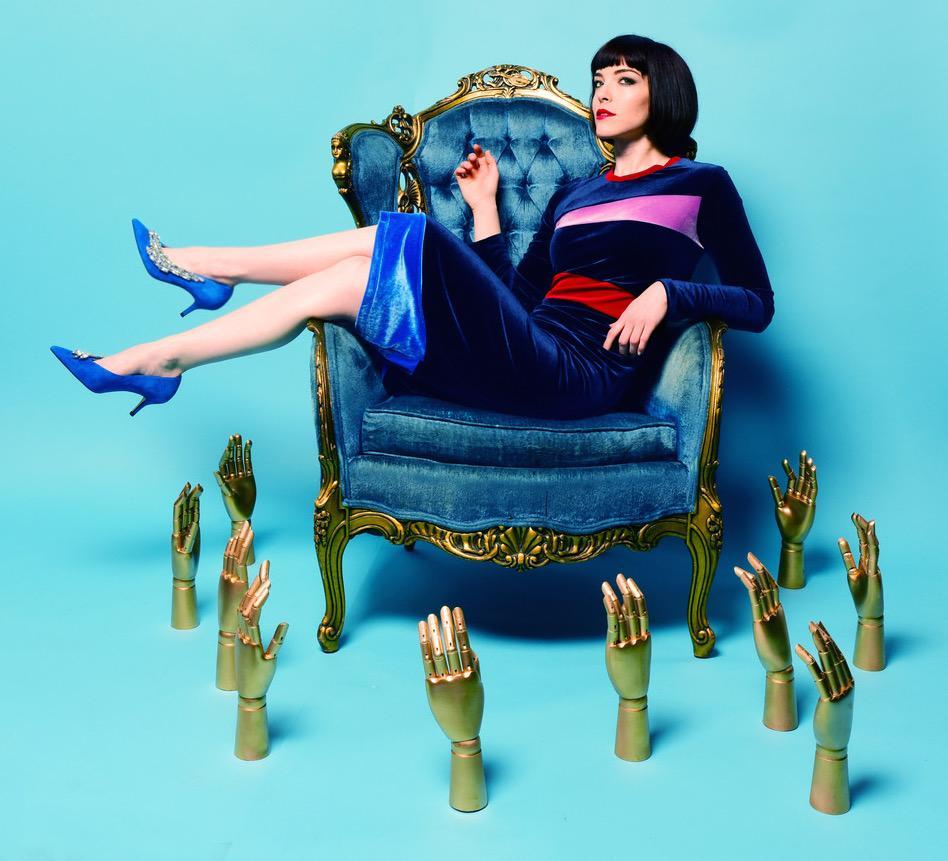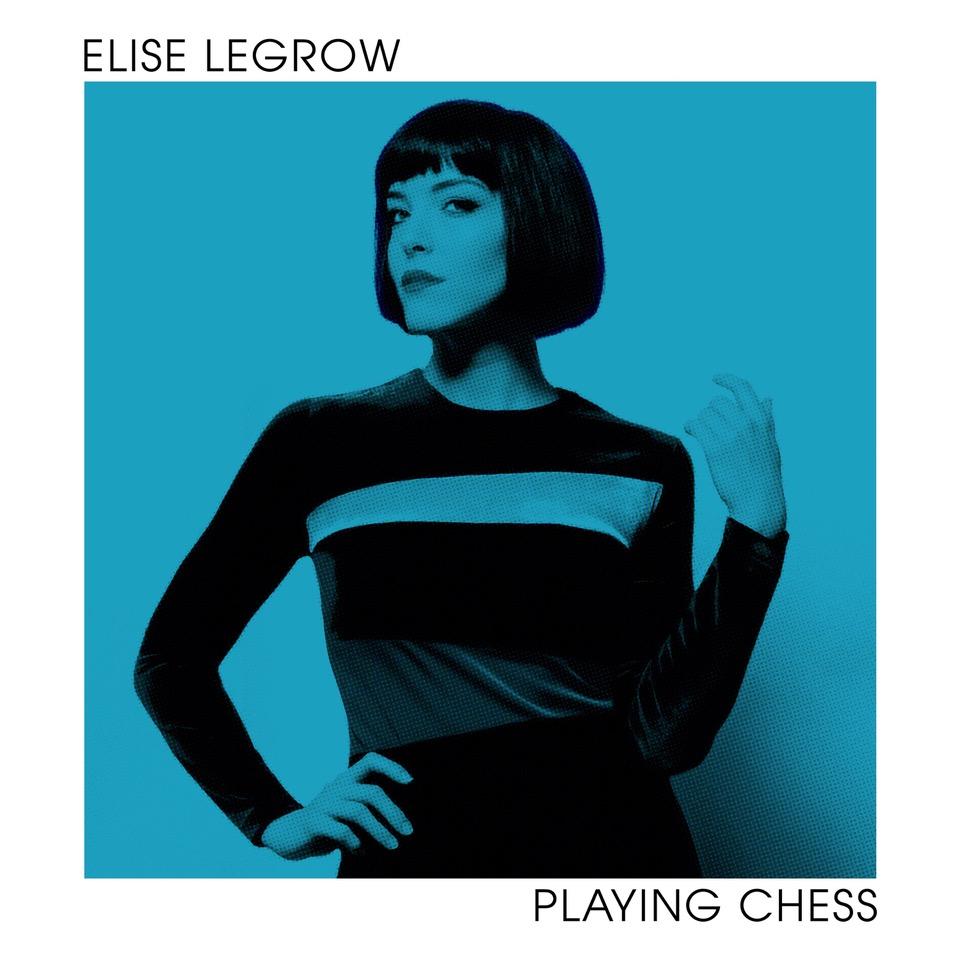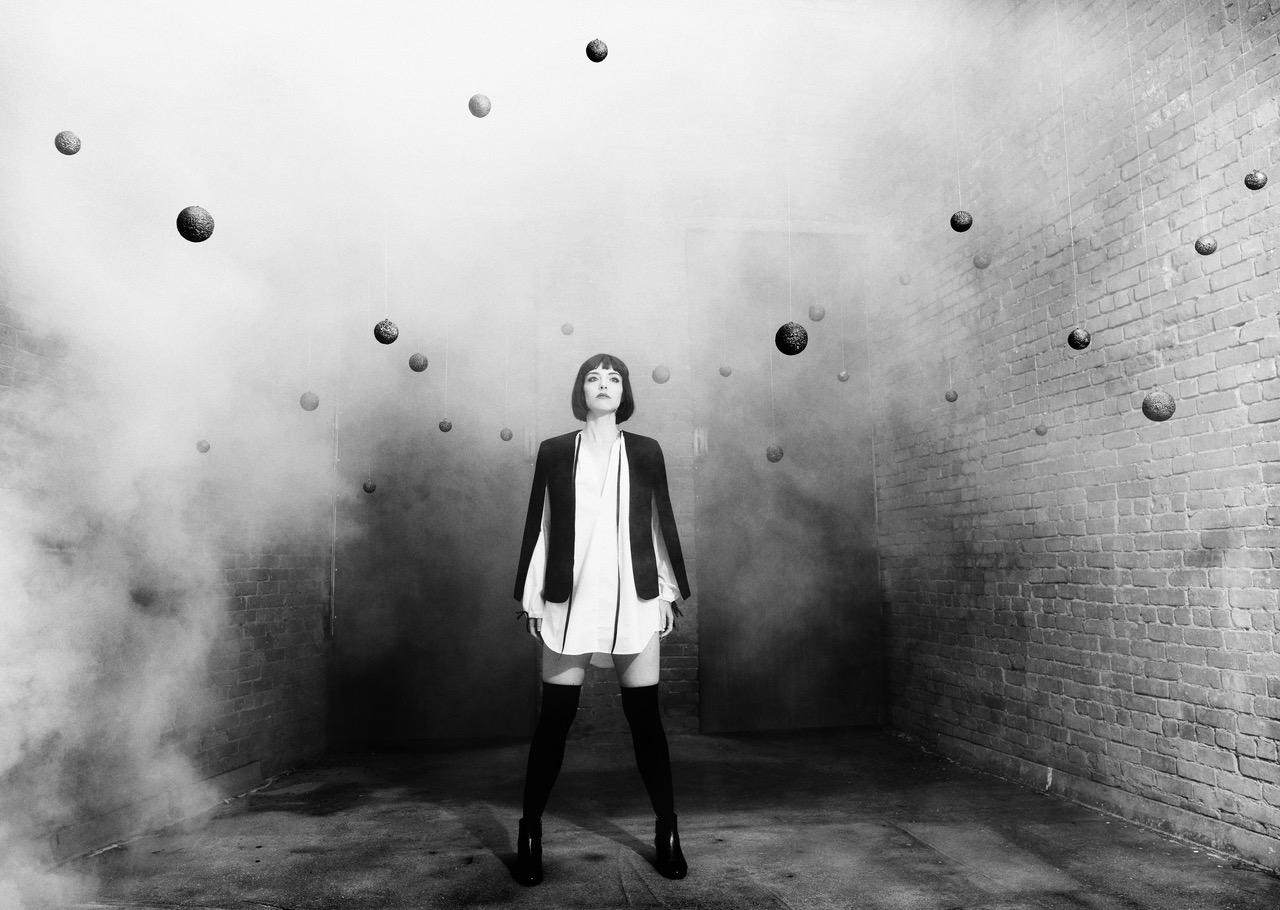The Independent's journalism is supported by our readers. When you purchase through links on our site, we may earn commission.
Elise LeGrow: 'That’s the essence of creativity: not caring what other people need you to do or need you to be'
As concepts for debut albums go, LeGrow’s is certainly intriguing. Rather than creating an album of original work, she has instead taken on one of the most formidable back catalogues in music history

It’s a freezing afternoon in Paris. The snow that enveloped the city in a dream-like Narnia last weekend has melted, leaving nothing more than icy wind and frosty air. Travelling past the Arc de Triomphe and Eiffel Tower to First Avenue, I’m on my way to meet Canadian singer-songwriter Elise LeGrow a few days before the release of her debut album, Playing Chess.
It’s a relief to finally arrive at the warm hotel in central Paris when LeGrow greets me enthusiastically, glass of champagne in hand. She certainly has a lot to celebrate: aside from the impending collection, she is in the midst of a successful European tour and a few hours from now she will play her first ever Paris gig at the iconic Café de la Danse in the bohemian Bastille district.
As concepts for debut albums go, LeGrow’s is certainly intriguing. Rather than creating an album of original work, she has instead taken on one of the most formidable back catalogues in music history – Chicago’s Chess Records – re-imagining songs by some of the greatest blues, soul and R&B singers in history.
“Etta James was one of my favourite artists for many, many years,” LeGrow tells me, detailing the idea behind the project. “At the time, I was falling in love with her and her music but I wasn’t aware that she was on the Chess label. It was kind of a pleasant surprise when I went digging for songs for this record, to find her name amongst them.”
As well as James, LeGrow also covers Chuck Berry, Fontella Bass and Bo Diddley, together with rarer acts from Chess Records’ peak in the Fifties and Sixties. “It was months and months of research,” she tells me, explaining the process behind excavating the extensive Chess anthology.
“I was obviously searching the more normal places – going down the rabbit hole on the internet – but it involved extensive research in the Chess archives. I had never heard of Sugar Pie DeSanto until this project and I was totally blown away by her. ‘Going Back Where I Belong’ is one of her songs and we recorded that.”

Initially, LeGrow wanted the album to encompass the Motown and Northern Soul she grew up listening to and singing around venues in her native Toronto. It soon became apparent, however, that the enormous scope of Chess meant this would be too far-reaching.
“At the time, I was a little resistant to the idea of Chess-only,” she explains. “Yet as the process went on, I realised that was actually very wise… as a source of songs for a cover album, it really provided a lot of depth and breadth. It wasn’t limiting in the same way that maybe just focusing on Motown or Stax might have been – those labels had a very distinctive sound but there wasn’t the same kind of variety.
“What really worked to my advantage, and to the advantage of the whole project, is that Chess has this huge variety of artists. Etta James was there as one of the pioneers of soul and R&B, and then you have Chuck Berry and Bo Diddley that were early rock’n’roll artists: it was an incubator for such a number of different genres.”
LeGrow started singing almost at the same time as she began speaking according to her mother – unsurprising when you learn she is from a family of musicians, one of whom played in Chicago during the peak era of Chess.
“Music definitely runs in the family,” she nods. “My grandfather was a drummer, drumming in the Chicago era in the Forties. He was in the house band when guys like Louis Armstrong would come to town. My uncle is still playing saxophone in Toronto now in a few bands and he’s incredibly talented. He’s a multi-instrumentalist but sax is his main squeeze.
“I think I was doomed to be in music one way or another [laughs]. There are times when I think most artists doubt themselves or wonder what else they might have done with their lives. Aside from the joy that making music brings to me, I don’t think I really had a lot of choice in the matter. The music chose me.”
Learning her craft singing blues and jazz around small venues in Canada, LeGrow also toured in an alternative rock band. With some of the rockier choices on her album – those by Berry and Diddley being good examples – I wonder if her routes in rock played a part in choosing these songs.
“Yeah, definitely. When I was in my very late teens and early 20s, I was in a rock band based out of Toronto called Whale Tooth. We were touring all around in a crappy van, touring Canada. Then I had this other life that was my jazz life, and that was a little classier in terms of singing standards. I wore different clothes, I sang different songs and it was a different personality – yet it was still me. Both things were me.
“There’s a desire to brand oneself as only one thing and that’s your brand and what you do. Maybe that works for some people but for me that has never been the case. Even when I was a little kid I loved the Beatles and the Rolling Stones, yet I also loved Whitney Houston and Ella Fitzgerald. That’s just always been my way – and my way of singing as well.
“I don’t fit in a box or at the very least I have my toe in a few different boxes. If we need to involve boxes, then it has to be like a Twister situation with hands over here and feet over there [laughs].”

Watching LeGrow at Café de la Danse later in the evening, her interpretations of the catalogue are thoughtful and often strikingly different from the originals. Whilst tackling the likes of Berry and James may prove daunting for even the most experienced of artists, LeGrow takes them on with aplomb.
“That’s the essence of creativity: not caring what other people need you to do or need you to be,” she explains. “The only way to keep being creative is to not allow yourself to be put in a box. Maybe it’s easier putting yourself in one category… but I’ve never been one to take the easy way [laughs], so here we are.”
Working with the Grammy Award-winning team behind Joss Stone’s Soul Sessions – Steve Greenberg, Betty Wright and Mike Mangini – LeGrow says she also learned the value of spontaneity in helping her to create these distinct, bold interpretations of the Chess catalogue. However, the arduous process of tackling such a renowned archive was not without its difficulties.
“I had a lot of anxiety going on because you know, this is a big deal, it’s my debut album and I wanted it to be great. I remember one day I had a really difficult day in the studio. There was some note I wasn’t hitting and I was really frustrated. I finished the day, got home and I was sitting with my friend and I remember I cried a little bit. I remember saying: ‘I want it to be great’ through tears on my friend’s shoulder.
“It’s still true – I want the show to be great too because it matters to me. But there’s a point after which the amount it matters can actually be a hindrance and Betty, Mike and Steve all contributed to this by telling me to just allow the music to happen. If you’re there and if you’re committed to do something great, and then if you just surrender a little bit to the process, great things will happen. Some of my favourite moments on the record were unplanned thanks to not having a rigid structure.”
One of the hardest to cover, LeGrow tells me, was Berry’s “You Never Can Tell”. “On some of the other songs, like ‘Who Do You Love’ for example, it strayed quite a bit from the original but I wrote those melodies. The ‘You Never Can Tell’ melody was written by Steve Greenberg and it was really the farthest one away from the R&B world that I normally reside in and out of my comfort zone.
“It posed a challenge in the sense of how to interpret the melody and the time signature and all of the components of the song which were really far away from the songs I normally sing day to day. With ‘Sincerely’ or ‘Long Lonely Nights’ these are soulful ballads and right up my alley – I’ve been singing that stuff since I was a kid. But I was really pleased how it turned out eventually.”
Part of the spontaneity too came from some of the artists and band members who collaborated on LeGrow’s album. Working with the Dap Kings – Amy Winehouse’s band on Black to Black – together with Questlove and The Roots’ Captain Kirk Douglas helped LeGrow to develop her confident sound. They also gave her ideas about the kind of structure she wants to have during live shows in the future.
“I got to benefit from the wealth of experience that is every single guy in the band. They’re so experienced and they provided lots of different insights. We had some of the horn players from the Dap Kings come in – the calibre of the people on this record [was humbling]. To have Questlove come in too and play on ‘Long Lonely Nights’ and Betty Wright as producer who was a soul legend in her own right. She had a big hit called ‘Clean Up Woman’ when she was just a girl yet even now, all these years later, she is still relevant. She featured on a few hip-hop tracks in the last few years and a DJ Khalid track recently. The woman has an insane career that any singer would dream of.”
LeGrow is backed on stage in Paris with just a solitary guitar and percussion, similar to her debut appearance on Later... with Jools Holland last year. Yet the straightforward structure allows her voice to soar. Recalling Selah Sue, Alice Russell and the late Amy Winehouse, LeGrow’s voice has all the vintage-sounding soul and blues of the Fifties and Sixties but with an emotive delivery that makes it relevant to audiences today.
“I’m not always able to play with the full band live. I love playing with the background singers and the horns and the whole big production is amazing. That’s sort of my dream show, like a 12-piece band or as many people as I can fit on the stage [laughs]. But that’s not always possible. I’m totally happy playing with one guitarist, one pianist. But my dream is a bigger ensemble and that’s what I’m working towards now, to a time when that is more feasible for the next record.”
LeGrow is well into writing her second album and is already debuting songs live on this latest tour. Fusing her love of the Fifties and Sixties with blues, jazz and rock, LeGrow has been writing songs for the album as far back as 10 years ago.
“Anybody who has heard the songs on Playing Chess will now have a taste of what will come in my original music. It’s going to be recorded with a live band, with background singers and horns and there’s lots of variety: some of them are ballads, some of them are little more rock’n’roll. It kind of made sense that the Chess catalogue would be a little indicator of what is to come. This record and the next record of my original music is just continuing that tradition of variety and diversity in tones, and personality and emotion. And that’s the way I like it.”
Recording on the road after buying a guitar (she is learning how to play) and recording as and when time permits, LeGrow and her band are trialling new songs on the road. “We’re hoping to squeeze out a few more gems before we head into the studio… I think building on the sort of desire for spontaneity and just having a rough sketch is all well and good but also if you’ve been playing the songs live in advance of recording, you can work stuff out there too. An audience is a wonderful focus group.”
Right now, as well as enjoying the tour, Elise is determined to enjoy the release of her debut. “I held the vinyl in my hands the other day – I’d had the test press before but this was the fully packaged version with the sticker on it and everything [laughs]. My mum came over the other day and I gave her a copy – she said: ‘I thought it wasn’t out until next Friday’ [laughs] – I had to explain to her as my mum she gets a special pre-release copy. That was really cute and a special moment: handing my mother my debut album.”
Join our commenting forum
Join thought-provoking conversations, follow other Independent readers and see their replies
Comments
Bookmark popover
Removed from bookmarks